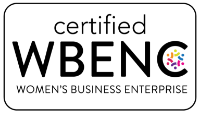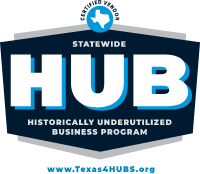Job interviews can run the gamut from stomach turning to ego boost. Sometimes they go smoothly but other times, you leave feeling you could’ve done better. A good way to stack the odds in your favor is to know what questions you might be asked and prepare meaningful, impactful responses. This blog takes a look at the 7 most common interview questions – and shows you how to answer them in a way that will impress prospective employers.
Recommended: 13 Interview Red Flags to Watch For
1. “Tell me about yourself.”
The gold standard of interview questions, this question is usually an icebreaker that sets the tone for the rest of the interview. The trick is to answer it in a way that’s interesting and doesn’t sound like other applicants.
- Begin with a brief description of your professional history.
- Emphasize any major achievements and skills applicable to the position.
- Close with your career goals and the reason for your interest in the position.
Example:
“I have five years of experience in project management. At my last job, I managed a complex, multi-year implementation, acting as a liaison between our IT team and end users to ensure a smooth conversion and successful user adoption. The project was completed on time and under budget. I also worked on a pivotal project with the Salesforce team that reduced IT costs by 20 percent and improved sales productivity. I really enjoy working with all levels of the organization, and I am excited about the opportunity to bring my skills to a forward-thinking company like yours.”
Your goal is to paint a vivid picture of how you operate in the workplace and the impact you plan to have in your next role. To make an impact, provide details about your achievements (reduced costs by 20 percent) rather than making general statements.
2. “What is your biggest strength?”
This question lets you talk about skills that make you an ideal candidate, so the interviewer isn’t looking for a generic or vague answer. Instead of simply stating one of your strengths, such as “I’m a good communicator,” provide an example of how your strength has been tangibly demonstrated in the past and how it can be applied to the role.
- Choose an area of your strength related to the job.
- Provide at least one example where you have used this strength.
- Explain how this strength would benefit the company
Example:
“One of my biggest strengths is developing trusted relationships with internal clients. In my last role, I created a proactive communication process that increased satisfaction and trust among users and reduced user training and adoption time. I think my process could help improve productivity across all departments at your company.”
3. “What is your biggest weakness?”
This question is tricky since you need to balance honesty and strategy. To answer effectively:
- Choose a real weakness that is not significant to the job.
- Demonstrate self-awareness and a commitment to improvement.
- Describe what you do to overcome that weakness.
Example:
“I sometimes struggle with presenting to large groups. To address this, I’ve joined a local Toastmasters club and have been actively seeking opportunities to present at team meetings. I’ve already seen improvement in my confidence and delivery, and I am committed to continuing this growth.”
4. “Why do you want to work here?”
This question reflects both your knowledge about the company and your interest in the position. The interviewer isn’t looking for you to make up a reason to “love” the company. They want to hear genuine reasons the job aligns with your career goals and values.
- Research the company thoroughly before the interview (website, social media, news articles.
- Align your career goals with the company’s mission and values.
- Highlight particular aspects of the company or role that genuinely excite you.
Example:
“I admire your company’s commitment to sustainability and innovation in the tech sector. Your recent launch of eco-friendly product lines resonates with my passion for combining technology with environmental responsibility. I am excited about the possibility of contributing to projects that will make a positive impacts on the environment.”
Recommended: Get Hired in Today’s Job Market – 5 Tips
5. “Where do you see yourself in five years?”
This question helps employers gauge your ambition and long-term commitment. To make sure you stand out from other candidates, make sure your answer goes beyond the generic:
- Be realistic; state targets that align with possible growth within the company.
- Show interest in learning and further professional growth.
- Show that you are loyal, but don’t get into specifics about what you will or won’t do five years from now.
Example:
“In five years, I see myself growing into a leadership position that would enable me to mentor junior team members and participate in strategic decision-making. I am quite excited about the professional development opportunities your company offers, and I look forward to increased responsibilities as the company grows.”
Recommended: 4 Tips to Stand Out to Employers and Land Your Dream Job
6. “Describe a time when you encountered a problem at work and how you dealt with it.”
This is a behavioral question that evaluates problem-solving skills and resilience. The goal is to show that you are someone who can stay calm under pressure and think strategically to solve problems.
- Use the STAR method – Situation, Task, Action, Result – to showcase how you have handled conflicts or challenges in the past.
- Choose an example that is relevant to the role you’re applying for.
- Focus on your actions and the positive outcome for yourself and all parties involved.
Example:
“In my last job, we faced an unexpected 30% decrease in our budget. The challenge was to deliver the same results with less money. I led a team brainstorming session how we could increase our efficiency, and we negotiated partnerships with vendors to lower the costs. This helped us complete the project within budget constraints.
7. “Do you have any questions for us?”
This is your chance to express interest and dig a little deeper to learn more about the interviewer. This question is not probing for a specific answer; the interviewer wants to gauge your curiosity and enthusiasm for the role.
Prepare questions that show interest in the company, job and team. Take this chance to reiterate your enthusiasm for the role. Don’t bring up salary or benefits just yet.
Examples:
- “Can you tell me a bit about the team I’d be working with?”
- “What does success look like in this role?”
- “How does this position contribute to the company’s long-term goals?”
- “Is there any reason why I would not be hired for this position?”
Ready To Put These Answers Into Hiring Action?
Once you’re prepared for the most common interview questions and how to answer them, you’ll be ready to take on your next interview. Give detailed, confident responses that disclose your skills, experience, and personality, and you’ll make an excellent impression.
And don’t forget to be authentic and true to yourself. Employers will appreciate your honesty, and it’s the best path to finding a role you enjoy.
Recommended: 14 Proven Tips to Stand Out to Recruiters
If you’re looking for a new job opportunity, contact BravoTECH at 800-762-7286. Our team of expert recruiters will offer personalized advice to help you find the right role that best fits your interest and goals.



